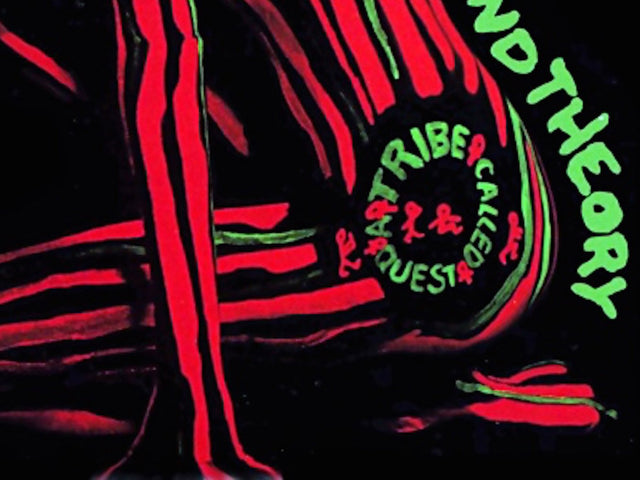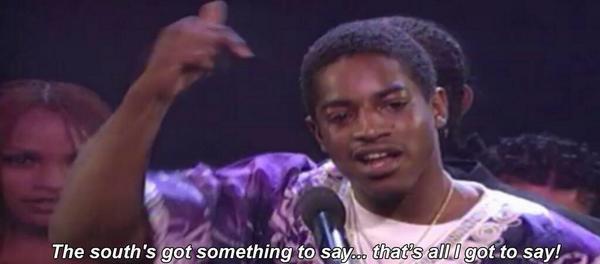Setiap minggu, kami memberi tahu Anda tentang album yang menurut kami perlu Anda habiskan waktu. Album minggu ini adalah Big Fish Theory, album baru dari Vince Staples.
Big Fish Theory exists in the imaginative canon first built via Vince Staples’ Prima Donna EP, a short venture into an artist consumed by fame and overwhelmed by trauma. It gave us moments in optimal flexin’ and felt like the preface to a suicide note, depending on which order you played the project in. After a recent admission of the excellent Amy documentary as primary source material, Big Fish Theory walks the same sonic and thematic lines to expand that universe, giving us a Vince determined to finally set his own context for the umpteenth time, dodging the pitfalls of his popularity to focus on the art when it feels like the last thing anyone worries about anymore. He’s changing faster than he can process: Note how the atheist speaks of meeting God before going to the car and singing of a love lost with The Temptations in the background. It’s Vince’s biggest statement thus far, but there’s no reflection of a nagging pressure or a chip on his shoulder after being elevated even further into critical darling territory. It’s an elevation of the grandiose way he views his future: art that’ll speak for itself.
Context is championed, and complicated. In 34 minutes, Big Fish Theory presents Vince as someone relatively settled into his success with more expensive problems than the omnipresent fight-or-flight Ramona Park graced him with. The first half even moonlights as a breakup album when it wants to. The seagulls and waves of Long Beach remain present throughout, with water imagery reappearing and shapeshifting throughout at Vince’s whim: distortion, clarity, success, a nightmare, the ones at your local strip joint. Kilo Kish returns throughout as well: a beautiful presence as an id seen through once more, clashing against Vince’s ego in previous works, but not seeing him as often now. It begs the question where the character ends and the person begins, as suicidal ideation and the surveillance he survived continue to resurface. Vince maintains the transparency of how much he despises the facades of fame, and how he may never escape his trauma no matter how fine the stewardess looks. Even when Vince humorously dabbles in excess more than usual—still more than he’s comfortable with, no matter his grand plans and MOMA ambitions—the sarcasm cuts sharper, the brightness remains murky, and contention is still a distant vision.
Unlike prior efforts, Vince’s sonic choices corner the market of industrial and electronic-tinted hip-hop by channeling the waves of its current innovators. SOPHIE, GTA, Flume and Zack Sekoff all contribute to give Big Fish Theory, a glossier knock than its predecessors, placing Vince’s register in the rave without compromising his content. Comparisons to Yeezus are low-hanging fruit here, and simply untrue: where Kanye threw it all at the wall, Vince’s team were delicate and deliberate with innovation as the only intentionality. This effort’s best felt when we hear Vince pacing in his monotone on “Big Fish,” a hyphy ode to transcribing survival mode, or the standout “HOMAGE” which channels a legendary Rick Ross refrain over an unrelenting club track, Vince positioning himself as “too cultured and too ghetto” while contemplating a River Phoenix-esque demise not too long after. Kendrick Lamar checks in for his industry-standard floater verse on “Yeah Right,” freewheeling through flows and dead competitors, while Ty Dolla $ign’s presence on “Rain Come Down” works through its own awkwardness.
Big Fish Theory isn’t another straightforward observe-and-report from the frontlines, even when it is, and that’s surely for the better whether the audience acknowledges it or not. To even critique the work of Vince Staples—a man who leaves plenty to the imagination in an oversharing information age—feels awkward at best, corny at worst. He detests corny shit, but a diehard since the first iteration of the Shyne Coldchain series, I’m wholeheartedly prepared to accept the latter as my fate. If he doesn’t tire of the machine, Vince Staples’ trajectory—starting from the revivalist gangsta rap fringes of Odd Future—suggests an undeniable legacy as an MC who dared to shift the discourse and ignore the nonsense. On the brink of his 24th birthday, he’s proven yet again that he has nothing to worry about as long as the rooms fill and he gets the exhibit; the notecard with his birthday on it will be enough.
Michael Penn II (aka CRASHprez) is a rapper and a former VMP staff writer. He's known for his Twitter fingers.
Bergabung dengan Klub!
Bergabunglah sekarang, mulai dari 44 $Diskon eksklusif 15% untuk guru, mahasiswa, anggota militer, profesional kesehatan & penjaga pertama - Verifikasi sekarang!







